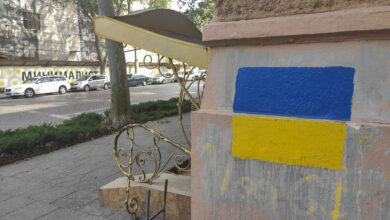Ukraine’s farmers on front-line to feed world

Lviv, Ukraine, May 23 (EFE).- Before the Russian invasion nearly three months ago, Ukraine was known as Europe’s breadbasket.
Its favorable climate, modern equipment and abundant fertilizers allowed Ukrainian farmers to yield up to three harvests a year.
The country was finally starting to exploit its great potential and exporting up to 75% of its wheat, corn and sunflower seeds production.
But when Russian president Vladimir Putin ordered a full-blown invasion on February 24, everything changed.
The majority of agricultural land in Ukraine is in the central and southern parts of the country, with the largest arable fields located in the Kherson Oblast province, currently under Russian occupation.
What used to be a peaceful profession has become a dangerous one, especially for farmers working on the frontlines who now have to wear bulletproof vests and be accompanied by deminers.
Igor is one of the many farmers that was forced to abandon his field after Russian soldiers ransacked his wearhouse and stole his tractors in the Zaporizhzhya region.
The Russians also stole machinery from a local dealer who was able to remotely block the equipment so that they would not be able to use it, Igor, who did not give his surname to Efe, says.
As well as the existing hostilities, farmers are facing logistical problems.
Before the war, producers would sell their harvest to middlemen, who would deliver the cargo directly to ports, which since the invasion, have been blocked.
This has left the railway as the only means of transport in Ukraine.
But Ukrainian railroad tracks are wider than those of the European Union, so train wagons transporting the harvest are forced to stop at the border to transfer the cargo to containers compatible with the European system.
This point in the supply chain has become a target for Russians and forces have been attacking train wagons with missiles.
“I don’t think we will ever starve, we have too much production here,” Jonathan, who runs the family farming business Norbilc Agri, tells Efe.
“But it is North Africa and Southeast Asia, who depend on these exports, that could face a huge food crisis,” he adds. EFE
ao/mp/ch





